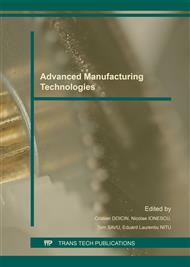p.187
p.193
p.199
p.205
p.211
p.217
p.225
p.231
p.237
The Teaching Degree – A Premise in Objective Satisfaction Evaluation in Technical Higher Education
Abstract:
It’s well known that the professional experience cumulated in years of teaching brings another vision towards certain challenges. The present paper aims to identify the teachers’ difference of opinion regarding certain aspects of satisfaction on all teaching positions – assistant, lecturer, associate professor, professor. The results have been obtained by analyzing 132 answers received after the distribution of a questionnaire regarding satisfaction in technical higher education. After analysis, for the same dimension of satisfaction, a variable distribution could be observed, explained by the different professional experience of each respondent.
Info:
Periodical:
Pages:
237-242
DOI:
Citation:
Online since:
April 2016
Authors:
Keywords:
Price:
Сopyright:
© 2016 Trans Tech Publications Ltd. All Rights Reserved
Share:
Citation:


